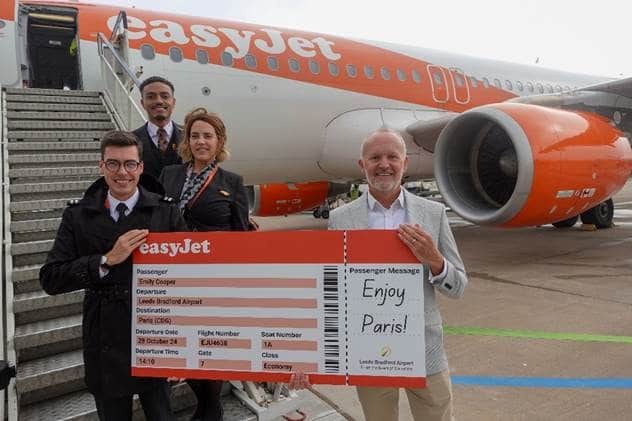Using Guest-Led, Conversational AI to Transform Your Hotel Operations

A Guide to Using AI in Customer Service to Meet and Exceed Guest Expectations
As the hospitality industry rapidly evolves, one technology is emerging as a critical tool for improving guest experiences and streamlining operations: guest-led conversational AI.
In today’s tech-driven market, guests expect fast, personalized service, and hotels must meet these expectations while managing rising operational demands. Guest-led conversational AI offers a powerful solution by alleviating the pressure on staff, automating routine interactions, and helping hotels remain competitive.
Rising Guest Expectations and Operational Demands
Guests expect fast, accurate responses, and human staff, no matter how capable, are often stretched thin. This gap between guest expectations and operational capacity is where conversational AI shines.
AI-powered systems, like guest-led conversational AI, can handle a variety of guest interactions without human intervention, from answering frequently asked questions (FAQs) to providing real-time updates. The ability to manage these tasks efficiently not only improves guest satisfaction but also reduces the burden on hotel staff, freeing them to focus on higher-priority, personalized interactions.
Guest-Led Conversational AI’s Key Capabilities

Guest-Led Conversational AI’s greatest strength lies in its ability to mimic human interaction while performing at a high level of efficiency. This technology is powered by advanced natural language understanding (NLU), which allows it to comprehend the nuances of human speech, even when guests digress or ask multiple questions in one conversation. Conversational AI’s ability to manage these “multi-turn queries” makes it a valuable tool in providing seamless guest interactions.
Here are some of the critical ways conversational AI addresses the challenges faced by hotels:
- Handling Complex Guest Requests: Modern AI systems can be trained to understand property-specific terminology, allowing them to answer detailed questions about amenities, dining options, and even local attractions. This level of customization ensures guests receive accurate information, improving their experience from the moment they inquire.
- Muti-Language Support: In today’s global hospitality market, it is essential to cater to international guests. Conversational AI excels in this area by offering support for multiple languages and regional dialects, eliminating communication barriers. Guests can ask questions in their native language and receive accurate, helpful responses, no matter where they are or how they speak.
- Call Routing and Efficiency: Beyond answering common inquiries, conversational AI can route calls to the appropriate departments, such as housekeeping, the spa, or the sales team. When necessary, AI systems can transition the call to a live agent seamlessly, ensuring guests receive the personalized service they need without unnecessary delays.
- Sending Follow-Up Information: After a conversation, AI can also send follow-up texts with important information—such as check-in details, restaurant hours, or room service menus. This proactive feature ensures guests have all the details they need at their fingertips, reducing the need for additional calls to the front desk.
How AI Supports Hotels in High-Demand and Crisis Situations
Conversational AI becomes even more critical during high-demand situations and crises, such as weather delays, travel disruptions, or sudden emergencies. These events often overwhelm hotel staff as they manage a flood of guest inquiries about everything from cancellations to room availability. In such cases, conversational AI can alleviate the pressure by handling many of these interactions.
AI systems can provide real-time updates, deliver necessary information, and route specific inquiries to the proper departments. This can dramatically reduce wait times for guests and allow human staff to focus on more complex, personalized tasks.
For example, in high-demand travel seasons or during major events, AI can answer inquiries about late check-ins, room availability, or transportation options, ensuring that guests promptly receive the help they need. By managing these interactions efficiently, AI reduces the operational strain on front desk staff and enhances the overall guest experience during stressful or unpredictable times.
The Future of AI in Hospitality: Can Hotels Afford to Wait?

As the hospitality industry continues to change, the question hoteliers must ask themselves is no longer whether to invest in AI but whether they can afford not to. With guest expectations rising, hotels that do not integrate AI into their operations may struggle to compete with properties that have already adopted these technologies.
AI provides more than just operational efficiency; it allows hotels to meet guests’ needs faster and more effectively than ever before. Hoteliers who embrace AI today are investing not just in technology but in the future of their businesses. By leveraging AI’s ability to manage routine tasks, answer complex inquiries, and provide real-time support, hotels can enhance guest satisfaction, increase efficiency, and ensure their operations run smoothly—no matter what challenges arise.
An Advocate for AI for Hospitality
At the heart of these advancements is John Smallwood, President of Travel Outlook. His vision has been instrumental in integrating guest-led conversational AI, known as Annette, the Virtual Hotel Agent™ (Annette), within the hospitality industry. Smallwood has consistently emphasized that AI solutions like Annette are not about replacing human staff but complementing them. “AI is here to handle the repetitive tasks,” Smallwood explains, “so that hotel staff can focus on providing the high-touch, personalized service that truly elevates the guest experience.”
Under Smallwood’s leadership, Travel Outlook has emerged as a thought leader in the space, setting the standard for how AI can be used effectively to enhance both operations and guest satisfaction. His approach to AI has transformed it from a mere tool into a strategic asset that allows hotels to stay competitive in a fast-evolving market.
As guest-led conversational AI continues to evolve, its role in hospitality will only become more critical. Hoteliers who act now, leveraging AI to streamline operations and enhance guest interactions, will be well-positioned to lead the industry. With John Smallwood’s vision and Travel Outlook’s Annette, guest-led conversational AI is no longer just a trend; it is the future of hotel management.
For more information on how Travel Outlook and Annette, the Virtual Hotel Agent™ can transform your hotel’s operations, visit TravelOutlook.com/Annette today.
Learn more about Travel Outlook
Have your say Cancel reply
Our emails to you has bounced travelmole.com Or You can change your email from your profile Setting Section
Your region selection will be saved in your cookie for future visits. Please enable your cookie for TravelMole.com so this dialog box will not come up again.
Price Based Country test mode enabled for testing United States (US). You should do tests on private browsing mode. Browse in private with Firefox, Chrome and Safari
You can see how this popup was set up in our step-by-step guide: https://wppopupmaker.com/guides/auto-opening-announcement-popups/
Subscribe/Login to Travel Mole Newsletter
Travel Mole Newsletter is a subscriber only travel trade news publication. If you are receiving this message, simply enter your email address to sign in or register if you are not. In order to display the B2B travel content that meets your business needs, we need to know who are and what are your business needs. ITR is free to our subscribers.
 United Kingdom
United Kingdom United States
United States Asia Pacific
Asia Pacific

























CLIA expands trade support with expedition event
Qatar Airways adding Manchester flights
Jet2 unveils Samos as new Greek destination for summer 2026
EU entry-exit system delayed again
ATC strike in Greece could disrupt flights this week